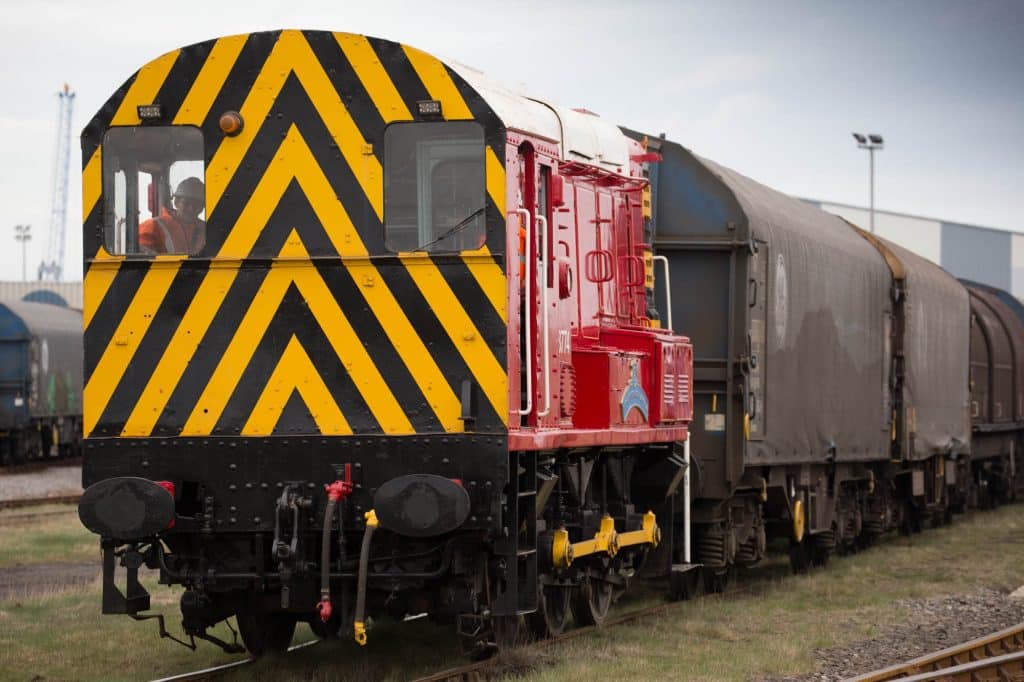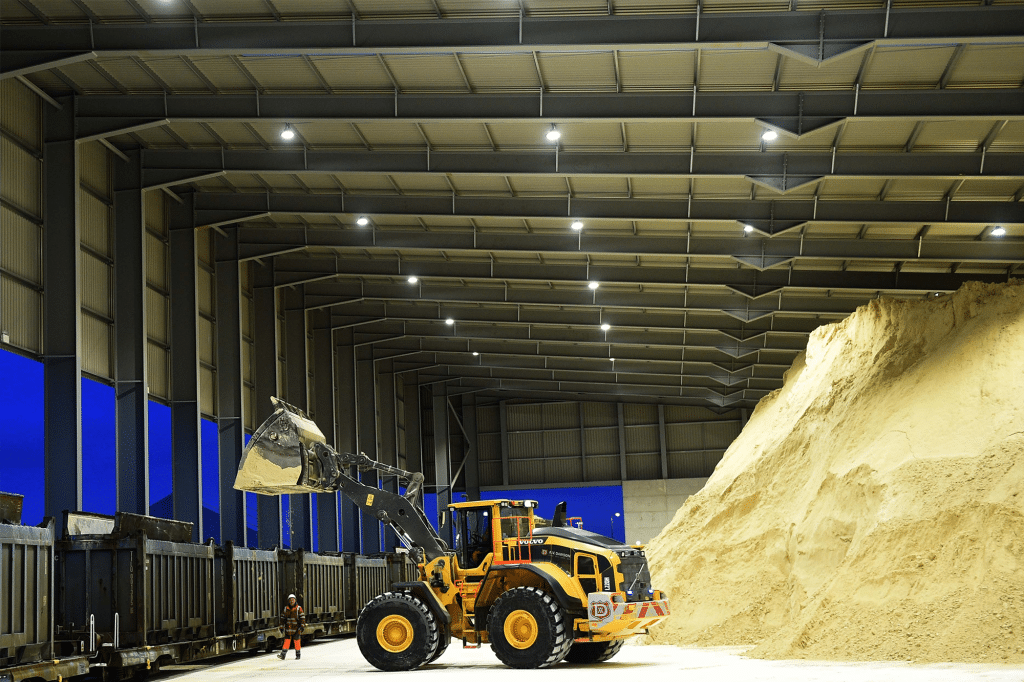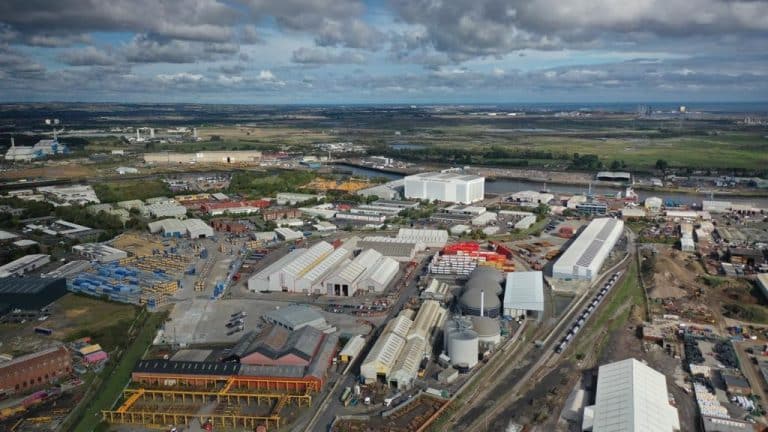When you think of port logistics, your immediate thought gravitates towards ships and quayside operations, however extensive supporting infrastructure, such as warehousing and transport also play a key factor in the smooth running of a port.
With over 85 years of logistics experience AV Dawson, owner and operator of Port of Middlesbrough, has built up extensive expertise in all things logistics. With the future in mind the business is expanding its Middlesbrough base, but also focusing on one of its key strengths as a port – its rail operations.
Rail has always been a fundamental part of operations at Port of Middlesbrough, in fact, it was the extension of the Stockton Darlington Railway in 1830 which resulted in the Middlesbrough branch line terminating at Port of Middlesbrough (then called Port Darlington) which resulted in opening of the port, and the birth of modern Middlesbrough.
Since 1987, rail operations have played a key part in the business’ offering when it diversified into the rail transport sector, after purchasing British Steel’s Ayton Rolling Mill, which positioned the firm as a significant rail-connected warehouse owner.
Fast-forward to 2023, with a clear roadmap to Net Zero, AV Dawson is looking to harness the site’s extensive rail infrastructure to grow and develop the business in an environmentally efficient way.
After several investments in its rail facilities, with four combined rail terminals, all linked via Middlesbrough Goods Yard and directly to the East Coast Mainline, Port of Middlesbrough is now one of the largest independent rail terminals in the North of England.


Each terminal offers unique and market specific freight handling services, including bulk products such as aggregates and fertilisers, steel and containers. The site also boasts further rail related assets including a 100-metre, rail linked canopy providing storage and dry-loading capabilities for bulk products and a rail-connected, climate controlled automotive metals distribution centre for serving the region’s car industry.
This extensive rail infrastructure provides increased efficiency and environmental benefits as it allows cargo to be transported directly from rail to ship, or into rail-connected warehouse storage without the need for additional road transport. More than 10-kilometres of operational rail lines is available to transport goods to and from its warehouses and quaysides.
Covering six-hectares of land, the dry bulks rail terminal is used for handling specialist aggregates and minerals cargos including daily trains of polyhalite. The terminal includes a rail pit and an extensive network of conveyor belts for unloading the cargo directly into its warehouses.
The climate-controlled automotive metals store offers a unique, state-of-the-art facility with a rail terminal linking directly into the warehouse. The store provides efficient loading and unloading from train to crane and directly into the store, with no requirements for road transport and no delays caused by adverse weather. It provides an integrated model, making rail even more competitive for the customer by providing increased speed and efficiency, improved customer service, value for money and reduced impact on the environment – saving around 100 tonnes of CO2 every year. It also showcases the efficiency of seamless rail connectivity, encouraging more businesses to consider rail.
More recently the company acquired the dry bulk business, Cobra Middlesbrough, as part of its strategic investment and expansion plans.
The Cobra site, which is directly adjacent to Port of Middlesbrough, boasts extensive rail infrastructure and has direct access to the East Coast Mainline, providing additional rail capacity for the port to support existing and new customers in the dry bulk and aggregates markets.

Charlie Nettle, group managing director designate at AV Dawson said:
“The rail sector is a hugely important industry for us and has been for the last three decades. The amount of investment the business has put into the sector, demonstrates just how crucial it is to the future of the business.
“The acquisition of Cobra Middlesbrough and more recently, Newport Park (a site adjacent to Tees Advanced Manufacturing Park, which we recently purchased), has seen us extend our footprint a further 12 acres in the last 12 months.
“These investments are strategically important for us, specifically Cobra for its excellent rail connectivity. Both will allow us to drive the business forward and improve efficiencies for our customers.
“With sustainability being at the forefront of the business, we try and grasp any opportunity we can to take a substantial amount of heavy traffic off the roads. Rail and road complement each other so it is important that each mode plays to its strengths and that is what AV Dawson is putting into practice. Rail freight has an important role in providing a safer, sustainable alternative to HGVs which reduces road congestion.
“This is a significant aspect of our Net Zero strategy. Our ultimate aim is to become a carbon neutral business and we see rail as a big opportunity to help us and our customers to achieve this.”